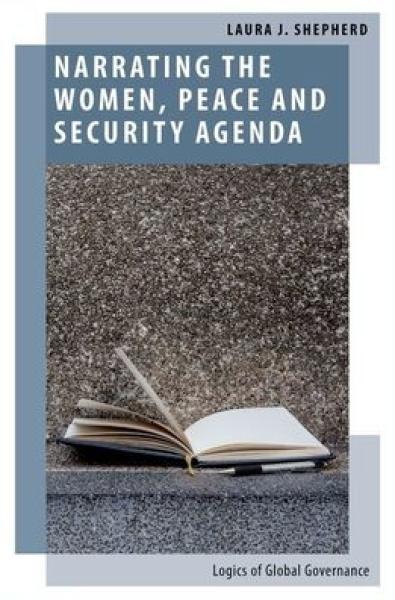Description
global policy "solutions" around the world.
Through the lens of narrative, this book examines the Women, Peace and Security (WPS) agenda, adopted by the United Nations Security Council twenty years ago. The agenda seeks to increase the participation of women in conflict prevention efforts and to protect the rights of women during conflict and
peacebuilding. Those involved in the creation of the WPS agenda, including its strategies, guidelines, and protocols, tend to assume that implementation is the most critical element of it. But what can the stories about the agenda's emergence tell us about its limits and possibilities? Laura J.
Shepherd examines WPS as a policy agenda that has been realized in and through the stories that have been told about it, focusing on the world of WPS work at the United Nations Headquarters in New York. She argues that to understand the implementation of the agenda we need to also understand the
narration of the agenda's beginnings, its ongoing unfolding, and its plural futures. These stories outline the agenda's priorities and delimit its possibilities--as well as communicate and constitute its triumphs and disasters.
As the book shows, much energy and resources are expended in efforts to reduce or resolve the agenda to a singular, essential "thing"--with singular, essential meaning. There is no "true" WPS agenda that practitioners, activists, and policymakers can apprehend and use as their guide; there is only a
messy and contested space for political interventions of different kinds. Shepherd shows that the narratives of the WPS agenda incorporate plural logics but that this plurality cannot--should not--be used as an alibi for limited engagement or strategic inaction. Those seeking to realize the WPS
agenda might need to live with the irreconcilable, the irresolvable, and the ambiguous.
"This history of UNSCR 1325, and its articulation of the Women, Peace and Security agenda that grew from its adoption, are as familiar to anyone working on the agenda as the alphabet, the rules of grammar and syntax, or the spelling of their own name. In this book, I encounter Women, Peace and Security as a policy agenda that emerges in and through the stories that are told about it, focussing on the world of WPS work at the United Nations Headquarters in New York (noting, of course, that many other equally rich and important stories could be told about the agenda in other contexts). Part of how the WPS agenda is formed as (and simultaneously forming) a knowable reality, is through the narration of its beginnings, its ongoing unfolding, and its plural futures. These stories account for the inception of the agenda, outline its priorities and delimit its possibilities, through the arrangement of discourse into narrative formations that communicate and constitute the agenda's triumphs and disasters. This is a book about the stories of the Women, Peace and Security agenda, and the worlds they contain"--
"This book reveals the political dynamics underlying 'insider' narratives about a significant policy insurgency: the effort(s) to make the world's apex conflict prevention body, the UN Security Council, take responsibility for engaging women--and addressing violations of their rights--in its work. As
each chapter peers into stories about coordination of effort and clarity of purpose, readers learn not just about feminist advocacy strategies (and internal ambivalences), but about the importance of analyzing the intentions behind stories of policy success and failure." -- Anne Marie Goetz, New
York University
"A fascinating book that amplifies the sounds and silences in the corridors of power. Shepherd's skillful analysis of narratives as a way to 'know' Women, Peace and Security breaks new ground--it overturns the comforting idea that the agenda is settled and vividly demonstrates how stories matter
politically, and shape multiple meanings of WPS over time. A must-read for all interested in learning more about a gendered world of global governance that is complex, plural, and infinite." -- Heidi Hudson, University of the Free State, South Africa
"This pathbreaking work walks you through the 'presences' and 'absences' in the stories of the WPS agenda at the United Nations Headquarters in New York, with a focus on what is (and is not) part of the 'is'. The methodology of the book is innovative, and by privileging narratives as a form of
knowledge production the work not only challenges the epistemic hierarchies that have been reified by the 'diktats' of the discipline of International Relations, but also illuminates what is often not told, and therefore what is not part of the 'is'. Yet again, what is striking in Shepherd's
writings is the reflexivity that she brings to us these narratives, and the honesty with which she recognizes the exclusions and limitations of the agenda." -- Shweta Singh, South Asian University
Product Details
- Oxford University Press, Brand
- Mar 12, 2021 Pub Date:
- 0197557252 ISBN-10:
- 9780197557259 ISBN-13:
- 208 Pages
- 9.1 in * 6.1 in * 0.6 in Dimensions:
- 1 lb Weight:




